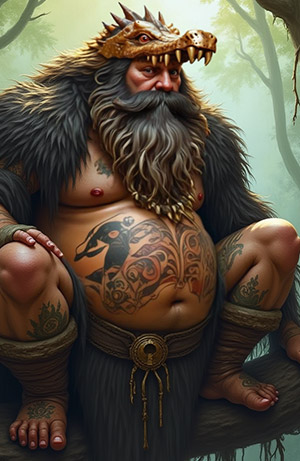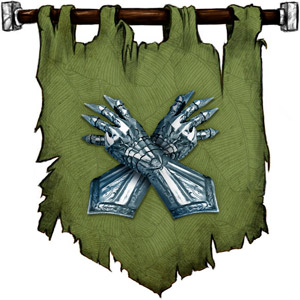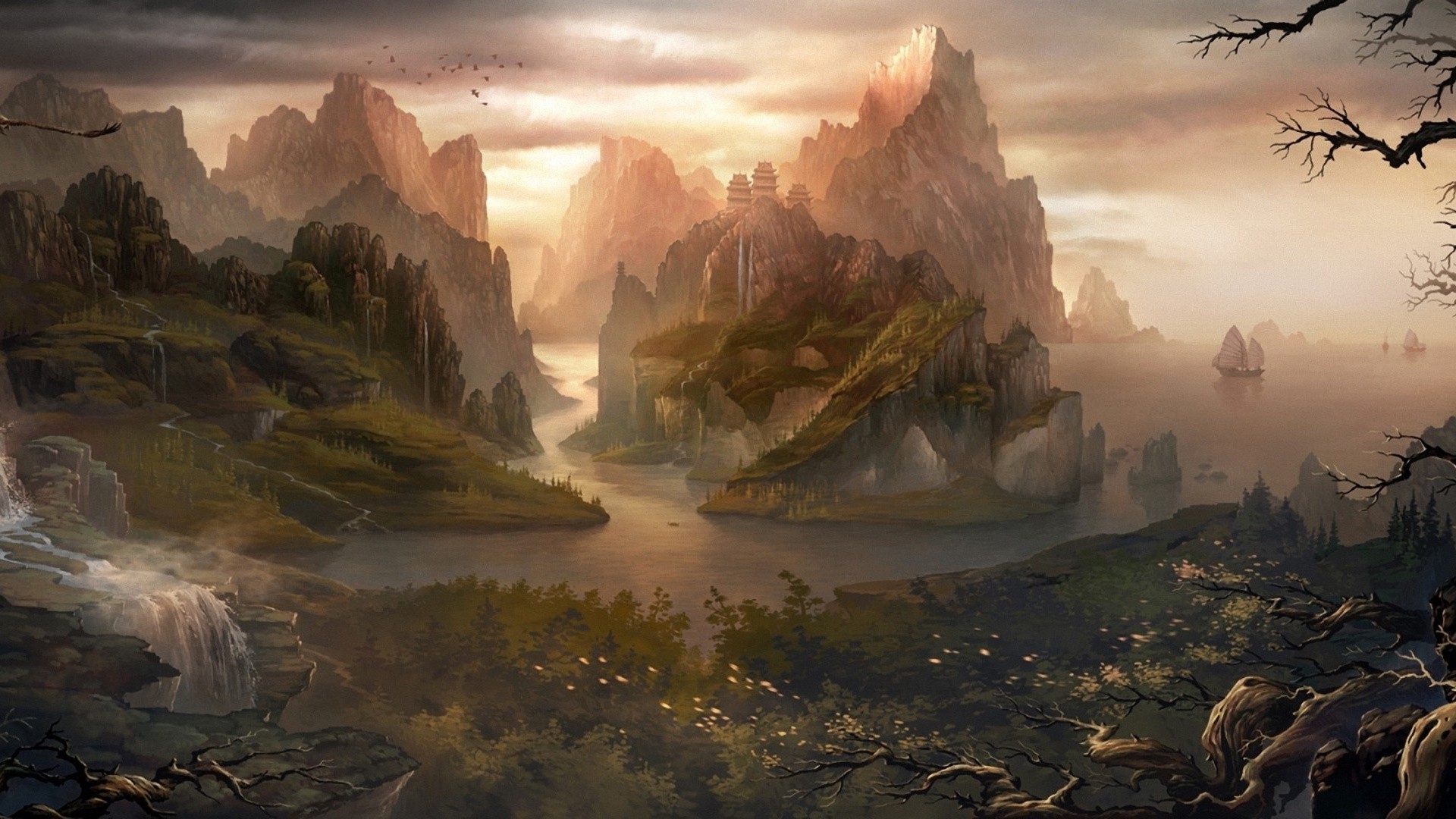Thard Harr
Thard Harr is the dwarven god of survival and hunting, and the patron of the wild dwarves; he watches over them and works to ensure their continued survival. His followers revere the wilds they live in and do their best to live in harmony with and to protect the wilds (and themselves) from outsiders who would do either of them harm. His followers tend to be suspicious and isolationist, and they rarely willingly interact with outsiders. Only those who have proven themselves over a long period of time can gain their trust. Thard Harr is also an exarch of Moradin.
Worshipers, Clergy & Temples
Thard's clerics and druids enjoy a position of reverence in their sheltered homelands. The worship of Thard Harr is so deeply ingrained in wild dwarf society that few even consider the possibility of other religions. The responsibility for eliminating persistent intruders (unless dwarven) into wild dwarven territory falls to the Disentangler's priests, and they are expected to lead such attacks as fearlessly and diligently as Thard himself. If a foe is too strong, a priest tries to call Thard himself to the scene mentally, and the Lord of the Wilds often responds by either sending a manifestation or, in very rare situations, by dispatching an avatar to deal with the threat directly. Thard's wisdom teaches that one can best defeat an enemy that one knows well. Seasoned wild dwarves try to capture at least one intruder alive for questioning before sacrificial use. If sparing the intruder seems likely to bring possible future benefits to the dwarves, they do so. Wild dwarves are interested in trade-metal, glass objects, and tools-in return for pelts, meat, or even live beasts. They conduct trade so long as they can conduct it on the territory of their choosing, to set up traps and ambushes to guard against treachery under the direction of priests of Thard.Vestments
Priests of Thard bear the god's crossed-gauntlets sign as a tattoo, usually on one shoulder or on the scalp, overgrown by their hair. Priests of Thard never cut their hair but instead, braid them into ropes that they tie around their waists or shoulders. If an enemy or beast cuts a priest's beard, there is no penalty; if done by the priests themselves, it is a sign that they are turning away from Thard's service and can no longer expect aid from the god. The skull of a large beast, such as a rhinoceros, great cat, or giant crocodile, is worn as a helm. For ceremonial purposes, the pelts or skins of monsters are worn as robes. Like other wild dwarves, the Disentangler's priests rarely don clothing, with the exception of their beast helms, as their long, woven hair serves as adequate garb. They cover their bodies with tattoos and grease. The grease serves to keep off insects and makes them hard to hold. When going to war, priests of the Disentangler plaster their hair and bodies with mud that, when combined with the grease they normally coat their bodies in, forms a crude but effective armor. Thard's priests favor metal weapons and tools, if available, but otherwise, they employ their fists and clubs.Hierarchy
Thard's clerics and druids are known as vuddor ("those of the wilds"). Priests of the Lord of the Wilds are known as Shamans and eschew the use of a formal hierarchy of titles. High Old Ones are collectively known as the Lords/Ladies/Sovereigns of the Wilds. Each priest receives a personal title in a dream on the night the individual is initiated into the clergy. Such titles typically include the name of a great beast of the wilds over which the priest is believed to have a small amount of supernatural control.Temples
Temples of Thard rarely incorporate artificial structures like buildings or dwarf-carved caves. The Disentangler is worshiped in isolated sanctuaries of incredible natural beauty rich in animal and plant life. Soaring cliffs, great waterfalls, vast gorges, hot springs, natural caverns, and volcanic mud flats are common places for Thard's worshipers to gather. Usually, up to a dozen priests of the Lord of the Wilds watch over such holy sites, and they can call on the beasts of the surrounding Wilds and nearby tribes of wild dwarves to defend these sanctuaries.Rituals
Vuddar pray for spells in the morning. Ceremonies venerating the Lord of the Wilds are held on nights of the full and new moon. On such occasions, several hunting bands come together under the direction of one or more priests of Thard. The drums and chants of the wild dwarves then echo throughout the wilds, striking terror in the hearts of intelligent beings and beasts alike. Whenever the moon is full, and often when the moon is new, blood sacrifices of beasts and/or intruders are offered to the Lord of the Wilds. Although they are not cannibals and do not usually eat intelligent beings, the assembled wild dwarves then often eat the still-warm sacrifice, regardless of its species.Orders
The Thardite faith has no formal military orders. However, on rare occasions, Thard's clergy collectively determine that going to war is in the best interest. At such times, the best warriors of the widely scattered hunting bands come together to form the Pack. The Pack includes bloods (young warriors), war leaders (more experienced warriors), and priests with demonstrable fighting skills. Once assembled, the Pack is a nearly unstoppable juggernaut that drives beasts and beings, great and small, from its path. Once the Pack's objective is achieved – the destruction of a yuan-ti enclave or a Batiri village, for example – the Pack quickly disperses, and its surviving participants return to their small hunting bands.Dogma
- Like the great tigers of the jungle, be strong and wary of beasts, whether they walk on two legs or four.
- Live in harmony with nature and gain the protection of the Lord of the Wilds.
- Seek to understand what you do not, but be wary of bringing unknown gifts into your lair.
- Honor the ways of your people, but assume that Thard's way is not the only way- just the best way for his children.





Comments